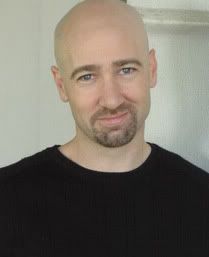China Stories Pt. 25: Live from Tiananmen Square
We assembled in the cool darkness just outside the hotel entrance at 2 or 3am. Inside, the hotel staff changed the carpets in the elevator and polished the marble floors and brass fixtures. Then we loaded up and headed to the square, a convoy of a half dozen cars and vans full of equipment and people.
We pulled up to the steps of the Museum of the People's Revolution, set up, and then, as the sun came up behind us, Dan Rather was beamed into American living rooms. (Especially living rooms in the not-so-coveted 45-54 demographic.) Then around 6 or so, we broke everything down, and headed back to the hotel. Back into the little island of quiet and order. Time enough to shower and have breakfast. Then it was time to go back to work.
I'm not sure how many times we did the broadcast from the Museum. Rather also anchored evening news broadcasts from the Tiananmen gate itself.
This was all by prior arrangement with government authorities, of course - it had been set up for Gorbachev's visit. Later, when the demonstrations were in full force, we just parked a flatbed truck in the northeast corner of the square and broadcast from there. By that point, students controlled access to the square, so we had to get their permission to enter the square. The students even issued press credentials and vehicle passes. And not just one group - there were multiple groups of students controlling access at different points. I don't know if they appreciated the irony. ("Down with bureaucracy! Can I see your papers?")
I held no job of any consequence in this undertaking – at one point, I may have held a sun reflector during the broadcast, but that was the extent of the excitement for me. My main role was to keep onlookers a reasonable distance back from the broadcast. I stood there with the students watching what was going on. "Where are you from?" they would ask. "America, CBS News," I'd reply. "Oh, good." They didn't know CBS, really, or Dan Rather, but they were happy to have the international press covering the demonstrations.
I was very cognizant of the fact that I was working for the media, and so therefore had some obligation to be objective. (Such a quaint notion!) I was also very aware that I was a guest in China, and I was engaging in activities inconsistent with my visa status. This meant that in theory, I could have been kicked out of the country at any time. Since I intended to have a longer term involvement with China, getting expelled would have been a bad idea.
I felt that I had no active role to play in this. I was a foreigner. I didn't have any skin in the game. I was especially sensitive to this point - I wasn't so presumptuous as to think that I was in any way an active participant in these events. I was there to help tell the story, and most of the students were very happy to have us there.
I'm glad I recognized that I didn't have anything like the same stake in events that the Chinese students had. But in hindsight, I wish I had been a little bit more expressive. I wish I had let the students know how much I supported them, and hoped for them and for their cause. I think they knew. (This was way back in the good old days when the US was considered a beacon of free speech and civil rights.) But I would have felt better if I had expressed myself more.



0 Comments:
Post a Comment
<< Home